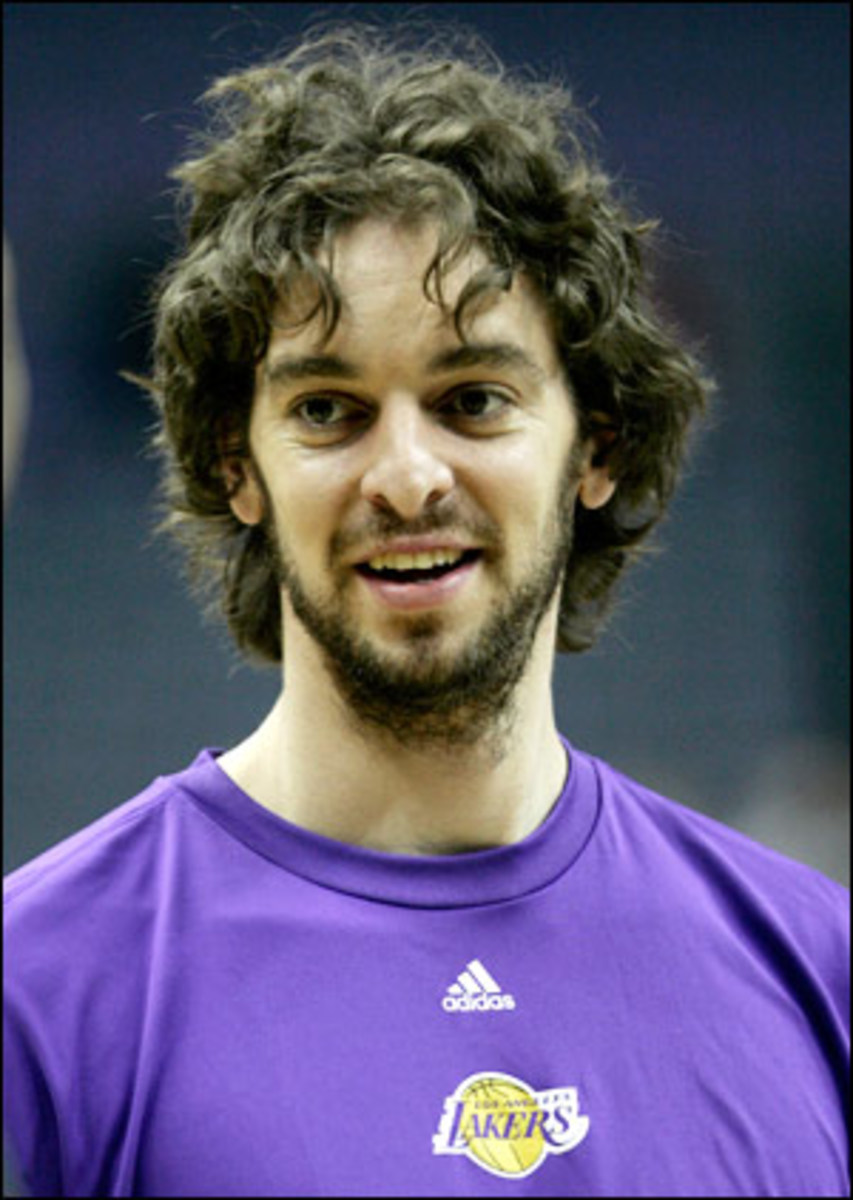Low price of Gasol
The Memphis Grizzlies have a plan. It's a secret plan. It's so secret, I'm not sure they even know what it is yet.
The Grizzlies' trade of Pau Gasol to the Lakers has been universally panned throughout the league as highway robbery. It was one of those deals you make in your NBA Live franchise, though, come to think of it, the computer in my game would probably reject it.
In return for Gasol, the franchise leader in 12 statistical categories, Memphis got some financial relief (Gasol has three years and $49 million left on his contract while new Grizzlies foward-center Kwame Brown is making $9.1 million in the last year of his deal); a talented but unknown point guard prospect in Javaris Crittenton; first-round picks in 2008 and 2010; and the rights to Gasol's brother, Marc, whose FIBA bio reads, "He has the same name, almost the same height, but seems a bit far from his hermano talent-wise."
The bulk of the talent clearly went west. So what gives? Why would Grizzlies general manager Chris Wallace make such a decidedly one-sided deal? Is he that upset at the Celtics for bringing in Danny Ainge over him in 2003 that he's willing to stack the deck in favor of their archrival?
(Just kidding, Chris.)
The popular opinion is that Memphis is strip-mining the franchise in preparation of a sale. According to Forbes magazine, the Grizzlies' operating losses were $18.5 million for the 2005-2006 season. Last season that number dipped to $10.9 million. The team's local broadcast revenue (approximately $4 million) is among the lowest in the league. Memphis has the third-worst average home attendance (12,854) this season, just ahead of New Orleans (12,453) and Indiana (12,179).
The Grizzlies have been swimming in red ink since billionaire owner Michael Heisley bought the team for $160 million in 2000, which explains why two years ago he was so eager to sell his 70 percent share in the franchise for $360 million to a group headed by Brian Davis and Christian Laettner. The deal, however, fell through when the former Duke teammates couldn't come up with the cash. Heisley has already said that "the community is going to be better off with a new owner," so it's not much of a leap to assume that now he is trying to slash his payroll to make the team more enticing for prospective buyers.
But that may not be the case. Reports out of Memphis say that it was Wallace and coach Marc Iavaroni pushing for the Gasol deal and that Heisley had to be persuaded to go along with it.
"The strategy sure as hell isn't to try to wreck the team," Heisley told the Memphis Commercial Appeal. "Quite honestly, if it was in my power to turn the Grizzlies into the San Antonio Spurs tomorrow, I'd do that. I don't think anyone appreciates how painful it is to be the owner of a team that's losing and have people criticize you."
If Heisley is telling the truth and trading Gasol was purely a basketball decision, well, the Grizzlies' franchise plan may not only be secret but also just plain bad.
That's not to say dealing Gasol was a bad move for the Grizzlies. As one NBA scout said, "They were a last-place team with Gasol. They can be a last-place team without him." The problem is what the Grizzlies got back for the 7-footer. Several teams made offers for Gasol, including Chicago, which is believed to have proposed a package that included gritty small forward Andres Nocioni and second-year forward Tyrus Thomas. The Grizzlies, however, held out for expiring contracts, and Brown's was the largest available.
Cap space is nice, and the Grizzlies figure to have $12-13 million to spend this summer. But mercenaries (at least good ones) are few and far between in the NBA. Good players want to play for a winner, and right now Memphis' roster is a collection of intriguing young talent and overpriced veterans. The Grizzlies have three youngsters (rookies Crittenton and Mike Conley Jr. and second-year player Kyle Lowry) competing at point guard. They have a potential star in Rudy Gay, who will be asked to assume the bulk of the scoring load. They have a sharpshooter in Mike Miller, who reportedly is being shopped. After that, it's pretty thin.
They could upgrade that talent in the draft, with their own high lottery pick as well as the Lakers' first-round selection (which figures to be in the low-to-mid 20s). Size will be at a premium, and the Grizzlies may be able to land a franchise center like Texas Tech's DeAndre Jordan (who has drawn comparisons to Dwight Howard) and pick up someone like Vanderbilt big man Andrew Ogilvy later in the first round.
The draft, however, is a crapshoot. The real thing is hard to come by. The Grizzlies had the real thing and they traded it away. And they didn't get much to build on in return.






